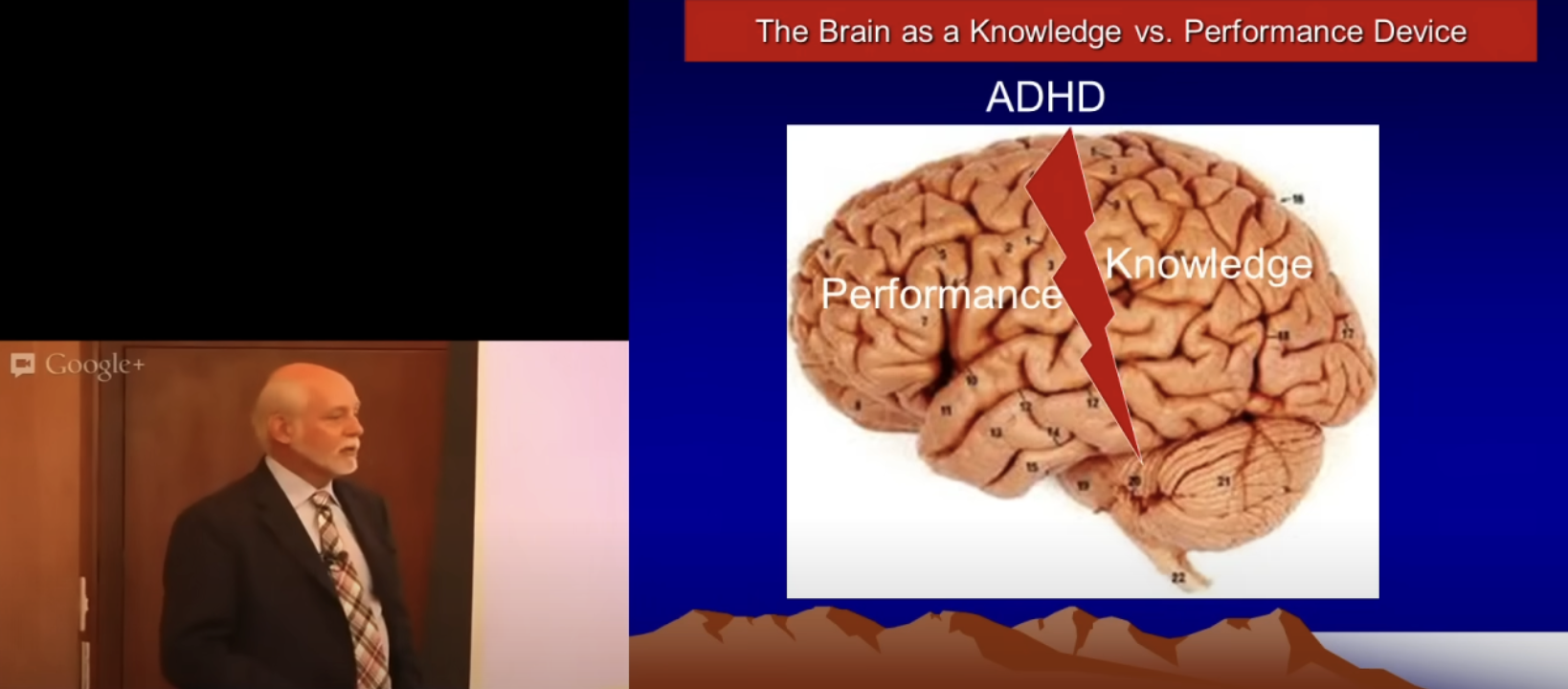Unlocking ADHD: A Wise Squirrel's Guide to Managing Executive Function.
What is adult ADHD like? What do I do if I have ADHD? Keep reading this helpful article for ADHD inspired by insights from Dr. Russell Barkley's science-based approach.
Attention Deficit Hyperactivity Disorder, ADHD can often feel like traversing a complex labyrinth, especially for those diagnosed later in life (hello, Wise Squirrel). Fortunately, Dr. Russell Barkley, a renowned expert in ADHD research, offers invaluable insights into managing this condition based on solid scientific principles. In his 2012 lecture, Dr. Barkley outlined key strategies for navigating ADHD, providing hope and clarity for individuals seeking effective treatment.
Understanding ADHD as an Executive Disorder:
Dr. Barkley emphasizes that ADHD is not merely an attention disorder but rather an executive functioning disorder. This means that individuals with ADHD may struggle with various aspects of executive functions, including planning, organizing, impulse control, and time management. Recognizing ADHD through this lens is crucial for tailoring effective interventions.
Medication as Neurogenetic Therapy:
One of the cornerstone treatments for ADHD is medication. Dr. Barkley explains that ADHD involves neurogenetic deficits, and medication plays a vital role in addressing these underlying neurological challenges. Medications prescribed for ADHD, such as stimulants or non-stimulants, can significantly improve executive functioning and attention regulation in many individuals.
Psychosocial Interventions:
In addition to medication, psychosocial interventions are essential components of ADHD treatment. These interventions encompass a range of strategies aimed at improving executive functions and mitigating the impact of ADHD symptoms on daily life. Behavioral therapy, cognitive-behavioral therapy (CBT), and coaching are among the effective psychosocial approaches highlighted by Dr. Barkley.
Externalizing Information and Making Time Physical:
Individuals with ADHD often struggle with working memory and time perception. Dr. Barkley recommends externalizing information by using visual cues, reminders, and organizational tools to compensate for working memory deficits. Making time tangible through clocks, timers, and structured routines helps individuals better manage their time and tasks.
Breaking Tasks into Manageable Steps:
Long-term tasks can be overwhelming for individuals with ADHD due to difficulties with time management and sustained attention. Dr. Barkley advises breaking down tasks into smaller, manageable steps to reduce the cognitive load and prevent procrastination. By focusing on incremental progress, individuals can achieve their goals more effectively.
How Adults with ADHD can improve executive functioning:
To enhance executive functioning, Dr. Barkley suggests various strategies, including:
Using rewards and positive reinforcement to motivate behavior.
Incorporating self-talk and positive affirmations to bolster self-efficacy.
Taking frequent breaks and engaging in relaxation techniques to replenish cognitive resources.
Participating in regular aerobic exercise to improve cognitive function and attention.
We also recommend taking a free executive function assessment to understand your strengths better.
Advocating for Treatment for ADHD:
Despite the effectiveness of ADHD treatments, Dr. Barkley highlights a concerning gap in recognition and treatment. Many individuals with ADHD, especially adults, remain undiagnosed or untreated. Advocating for oneself and seeking appropriate diagnosis and treatment is paramount for managing ADHD and improving quality of life.
“ADHD can reduce life expectancy by as much as 13 years, but its risk is reversible.” Dr. Russell Barkley, Ph.D.
In conclusion, Dr. Russell Barkley discusses a science-based approach to treating ADHD and offers a roadmap for fellow Wise Squirrels. By understanding ADHD as an executive disorder, incorporating medication and psychosocial interventions, and implementing practical strategies to enhance executive functioning, we can better manage our symptoms and thrive in daily life. Embracing treatment and seeking support are crucial steps towards empowerment and success in living with ADHD.
We recommend The Root Down, Dave Delaney’s ADHD-inspired presentation and process to know, respect, and connect yourself, as a great way to educate yourself, your company, or the audience at your next conference. Get in touch.
🪹 Introducing The Nest. Join our community, learn, share, and support your fellow Wise Squirrels. Come see what's inside.
Looking for ADHD-aware coaching? Book a complimentary session with Dave at Futureforth.com.
Wise Squirrels is Sponsored by Futureforth.




